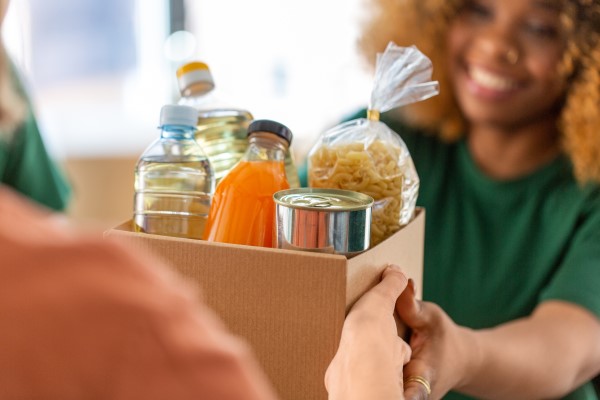Building a Sustainable Food System: From Concept to Creation

At the 2024 Hoosier Health and Wellness Alliance Annual Food Summit: From Concept to Creation, presenters discussed ways to collaborate and create a sustainable food system for everyone. They emphasized the importance of reflection, support, policy, and research in making sure that healthy food is accessible to all. Food impacts everyone’s life, and everyone should have the opportunity to access healthy options. By working together, we can improve our food system and increase access for all. This summit kicked off an essential conversation to strengthen a community dedicated to supporting and enhancing the food system.
Virginia Pleasant, Interim Director of the Food System Initiative at Purdue Northwest, opened this year’s summit encouraging participants to think about the importance of agriculture and our connection to food. She walked attendees through Indiana’s agricultural history, showing how it has shifted away from many small family farms to fewer, but larger farms today. Virginia highlighted ways to eat locally despite these changes, such as by supporting urban gardens, growing your own backyard garden, and visiting local bakeries and restaurants. She emphasized the value of maintaining a connection to our food and supporting our local food system.
Jodee Smith from Indiana Food Vision provided participants with insights into our food system and the role each person has within it. She explained that as consumers, our spending choices directly influence the actions of businesses, non-profit organizations, and the government. For instance, choosing to buy produce at a local farmers market instead of a grocery store chain supports the growth and sustainability of local markets. Jodee emphasized the impact of sharing thoughts and participating in food-related foundations and networks. These actions can drive government policies on food safety and support those struggling with food access. She also highlighted the various sources from which people obtain their food, including grocery stores, warehouse clubs, meal kits, food banks, direct purchases from farmers, and more. Additionally, Jodee noted that 56% of consumers spend money on food for meals away from home, such as in restaurants, nursing homes, universities, prisons, and hospitals. This diversity in food options and consumption patterns affects the overall food system. Everyone is a part of this complex web of connections, influencing the food we eat in multiple ways.
During the summit, John Williamson shared about his organization, K-12 Food Rescue, and how they are helping fight food insecurity. Each year, 33 million tons of food end up in a landfill and K-12 Food Rescue’s aims to redirect this surplus to feed those in need. Local Indiana schools have collected and donated 37,298,868 food items. Not only is K-12 Food Rescue helping fight hunger, but their work also decreased the CO2 emissions that unused food creates. Their work not only supports those who are food insecure but also contributes to environmental sustainability.
Lihlani Nelson from the Healthy Food Policy Project spoke about her organization’s research on food systems. She introduced a resource called Healthy Food Policy, which outlines all components of the food system. Each state has its own system map that includes steps like growing, processing, distributing, acquiring, preparing and managing surplus or waste. Lihlani encouraged attendees to reflect on their roles within the food system. She also explained that food policy involves government decisions affecting how food is produced, manufactured, distributed, marketed, and disposed of. You can learn about food policies being created across the United states here and explore more projects and resources from the Center for Agriculture and Food Systems here.
Last, Ashley Shonting discussed the impactful work of her organization, Food Not Bombs, which provides food to those in need by reclaiming food that would otherwise be discarded. Unlike other food pantries and banks, Food Not Bombs is unique in several ways: it is entirely volunteer-run, has a no-questions-asked policy, and offers exclusively vegan and vegetarian meals. During the summit, Ashley explained how to start a new chapter of Food Not Bombs, noting that each chapter operates independently and makes its own decisions. Ashley’s presentation was a great reminder to support those around you that struggle with food and reflect on the role you play in the Indiana Food System.
If you are interested in supporting Hoosiers in their relationship with food, you can get involved by joining the Hoosier Health and Wellness Coalition.
Watch the 2024 Annual Hoosier Health and Wellness Coalition Summit, Building a Sustainable Food System: From Concept to Creation here.